Ortskontrollfahrt (ongoing)
For the first time since the fall of the Nazi regime, a far-right party is once again threatening our democracy through the parliament. The term Ortskontrollfahrt describes a local ritual among young adults in rural areas: driving through their villages to see what is happening.
As political tensions rise, I travel with my bike across Germany to document the current challenges to our society.
As political tensions rise, I travel with my bike across Germany to document the current challenges to our society.
The party ‘Alternative für Deutschland’, presents the country with one of the biggest challenges of its time, by entering as the second strongest force to the German parliament.
While the election results of the past year’s elections were already showing worrying results, the social mood continues to deteriorate during the campaign for the major federal elections in 2025. "Ortskontrollfahrt" visualizes how policies and social inequalities affect trust in democratic structures, whilst breaking up populist narratives through subtext. My portraits give a voice to young and old people in the provinces, offer a platform to the socially marginalized, confront my viewers with frustrated voters, right-wing extremists and people who don't want to leave the countryside to the extreme right. For over a year, my ongoing project has been observing our society's echo to the current political turmoil, analyzing what provides fertile ground for far-right propaganda, mistrust and hostility.
While the election results of the past year’s elections were already showing worrying results, the social mood continues to deteriorate during the campaign for the major federal elections in 2025. "Ortskontrollfahrt" visualizes how policies and social inequalities affect trust in democratic structures, whilst breaking up populist narratives through subtext. My portraits give a voice to young and old people in the provinces, offer a platform to the socially marginalized, confront my viewers with frustrated voters, right-wing extremists and people who don't want to leave the countryside to the extreme right. For over a year, my ongoing project has been observing our society's echo to the current political turmoil, analyzing what provides fertile ground for far-right propaganda, mistrust and hostility.
Through research and the linking of socio-political events with individual stories, I analyse:
What will it take in the political future to bring the large number of people who feel left behind back into a participatory understanding of democracy?
What will it take in the political future to bring the large number of people who feel left behind back into a participatory understanding of democracy?
AfD election rally in Bautzen. There is a tense and angry atmosphere in the square during the political speeches at the election rally. In the weeks leading up to the election 2024, the number of people attending AfD events clearly shows how disturbingly many people feel targeted by the rightwing party. One year before the general election, Germany is facing a huge challenge to bring its citizens back to a participatory and solidary understanding of democracy. 27.08.24 - Bautzen
During the election campaign, the right-wing populist AfD is trying to present itself as a civic-minded alternative to democratic parties. In doing so, it repeatedly attempts to restrict the freedom of the press and conceal the extent of its links to the dangerous right-wing scene. The party is monitored by the Federal Office for the Protection of the Constitution and is categorised as right-wing extremist 29.08.24 - Dresden.
In January 2025, the AfD held its national party conference in Riesa. More than 15,000 people travelled to the small town on the banks of the Elbe to block the party conference with various demonstrations and sit-ins. The activist photographed suffered a panic attack during an aggressive police action and was taken into custody despite having difficulty breathing. The police only released her when the press called an ambulance. 11.01.2025 - Riesa
Jawad Ahmad, Imam of the Ahmadiyya community Hannover poses for a portrait. He grew up in Pakistan, came to Germany as a refugee in 2006 and studied theology. "The racism that the AfD is spreading in Germany is nothing new. It is a German continuity that has run through our society since the post-war period." He observes with concern the increasingly xenophobic tone in our society. 29.11.2024 - Hanover
On 9 October 2019, a right-wing extremist carried out a terrorist attack against the Jewish community at a synagogue in Halle. On Yom Kippur, the holiest day in the Jewish religion, the attacker attempted to enter the synagogue with firearms and explosives in order to kill those inside. He was stopped at the entrance and killed two people as he tried to escape. The delayed arrival of the police sparked renewed debate about Germany's efforts to protect marginalised communities. 18.02.2025 - Halle an der Saale
On 20 December, an assassin who sympathises with the far-right and the politics of the AfD attacks the Magdeburg Christmas market. He crashes his car into the market, killing five people and injuring several hundred. While the people of Magdeburg mourn, the far-right AfD uses the attack for its own purposes in the middle of the election campaign, inciting against criminal foreigners, campaigning for deportations and organising a demonstration with violent fascists. The Arab background of the attacker is reason enough for the party to agitate, even though the case is far more complex than the party is making it out to be. In the weeks following the attack, the media reported an increase in xenophobic attacks in the city. 27.12.24 - Magdeburg
On 7 December 2024, the AfD kicks off its campaign for the next federal elections in spring 2025 by inviting the press to a conference at its headquarters in Berlin, where it presents Alice Weidel as its candidate for chancellor. Although Weidel's chancellorship is not feasible for the AfD due to a lack of coalition partners, the party's leadership stages itself in front of the press, accompanied by applauding party members. 07.12.24 - Berlin
At a tractor festival in Kemnitz, Saxony, a farmer looks into my camera. The man sits quietly for hours next to his loudly rattling engines, which he is exhibiting at the event. In conversations with visitors to the event, I hear over and over again that people feel left behind by politics. There is a lack of awareness of the "really important issues" for people in the province. Phasing out combustion engines and sustainability are not on the agenda. 25.08.24 - Kemnitz
Neo Nazis hide behind a fences after being confronted by antifascist protests. 11.01.2025 - Riesa
Madlen and Almuth pose for a portrait at the edge of a counter-demonstration against an AfD event in Limbach-Oberfrohna. Both have moved from the provinces to the city to study. In the final phase of the state election campaign, they visit their family in the provinces to send a signal against the xenophobic policies of the growing right-wing. Contrary to most people who move away, they want to return to the countryside soon. 30.08.24 - Limbach-Oberfrohna
Winfried Engwicht is a member of the Oberlausitzer Bergleute, an association dedicated to preserving the traditions of the miners. He maintains his miner's uniform as conscientiously as the workingclass culture in which he has been socialised. Although German traditions are important to him, he recognises the complexity of Germany's political problems and makes it clear: "The new fascists have no solutions for us either. They are not an alternative!" He and his fellow members of the association are concerned that right-wing extremists are once again marching with drums through Görlitz. 24.08.24 - Tauchritz
Election day at Siebeneichen Castle in Meißen. Saxony and Germany as a whole face a major democratic challenge after the state elections in 2024. More than 30 percent of voters in Saxony voted for the AfD. All other parties ruled out any parliamentary cooperation with the far-right party during the election campaign. But how do you deal with the fact that the majority of votes went to a far-right party that is trying to influence democratic processes and discourse? 01.09.24 - Meissen
During the preparations for an election campaign appearance by Friedrich Merz, the German chancellor candidate, the BKA and the police carefully secured every centimetre of a hotel with their explosives-sniffing dogs. 18.02.2025 – Halle an der Saale
Derya and Hayrettin Saraçoğlu pose for a portrait in their flat. Fatih Saraçoğlu, Hayrettin's brother, was murdered in the racist attack in Hanau on 19 February 2020. "The crime was not an isolated incident, but an expression of right-wing violence that has been trivialised in Germany for years." Fatih's family and the 19th February Hanau Initiative have been fighting tirelessly for clarification, political consequences and a worthy remembrance ever since. "If our state does not assume its responsibility for social justice, it creates a breeding ground for racist attitudes and propaganda, which are particularly taken up by those sections of society that are looking for simple answers in a newspaper of social, economic and international crises. And when people have nothing left to lose, like the perpetrator in Hanau, they kill." 07.06.25 - Regensburg
A local woman observes the protests against the AfD party conference in Riesa. In a conversation after the photo, the resident tells me that she is voting for the AfD: "All these demonstrators and the media are bought puppets! The whole spectacle is absurd. I no longer have any faith in the old parties!" 11.01.25 - Riesa
Claudia and her husband are the parents of a disabled child and feel let down by the German government's social policies. In addition to a large self-sufficient garden and fields, they look after numerous animals on a farm. But neither of them is taking out their frustration at the ballot box. "I haven't watched TV or read a newspaper for a long time. I don't feel represented by any of the parties, but the AfD is not the solution for Saxony. I have the feeling that far too many people act and vote according to their emotions. They are driven by hate and don't see the real problems." 26.08.24 - Kleindesah
Author and activist Jakob Springfeld is one of Germanys best known young left-wing voices. In his home town of Zwickau, he experienced violence and pressure by local Nazi structures, about which he wrote a successful book.
"At least as important as active protest is the formation and pushing forward of our own progressive narratives and future perspectives. Antifascism remains hands-on work, and right now we have to stick together and have a stronger impact on society outside our own circles." 30.08.24 - Limbach Oberfrohna
"At least as important as active protest is the formation and pushing forward of our own progressive narratives and future perspectives. Antifascism remains hands-on work, and right now we have to stick together and have a stronger impact on society outside our own circles." 30.08.24 - Limbach Oberfrohna
Federal police forces occupy a bridge over the River Elbe at the entrance to the city of Riesa. Demonstrators blocked the main access route for AfD members of parliament to their federal party conference for hours. 11.01.2025 - Riesa
Every year at Whitsun, members of fraternities with a national-conservative tradition meet at the Coburger Convent. The most visible events are the torchlight procession through the town and the wreath-laying ceremony at the memorial to the fallen. What at first glance looks like a solemn commemoration is actually characterized by historical continuities. The ceremony ties in with a tradition that was already staged by Adolf Hitler during the Nazi dictatorship. Today, democratically elected mayors participate in the event, lending legitimacy to a tradition whose openness to far-right narratives and aesthetics raises urgent questions about the politics of remembrance and the role of public space in its preservation. Due to the ongoing protests, the Coburg Convention is less well attended from year to year. 09.06.25 - Coburg
Friedrich Merz takes the stage at the Konrad Adenauer Haus in Berlin on election night to give his victory speech after winning the Bundestag election. His campaign was marked by issues largely driven by the far-right AfD. This rapprochement between a conservative party and a far-right party is unprecedented in German history and leads to Holocaust survivor Weinberg demonstratively returning his Federal Cross of Merit to the Federal Minister in the final weeks of the campaign. The failed coalition, the heated atmosphere in German society and the lack of trust in the CDU's candidate Merz with a major democratic challenge: to strengthen democracy in order to prevent a future right-wing extremist government. 23.02.2025 - Berlin
Exhibitions
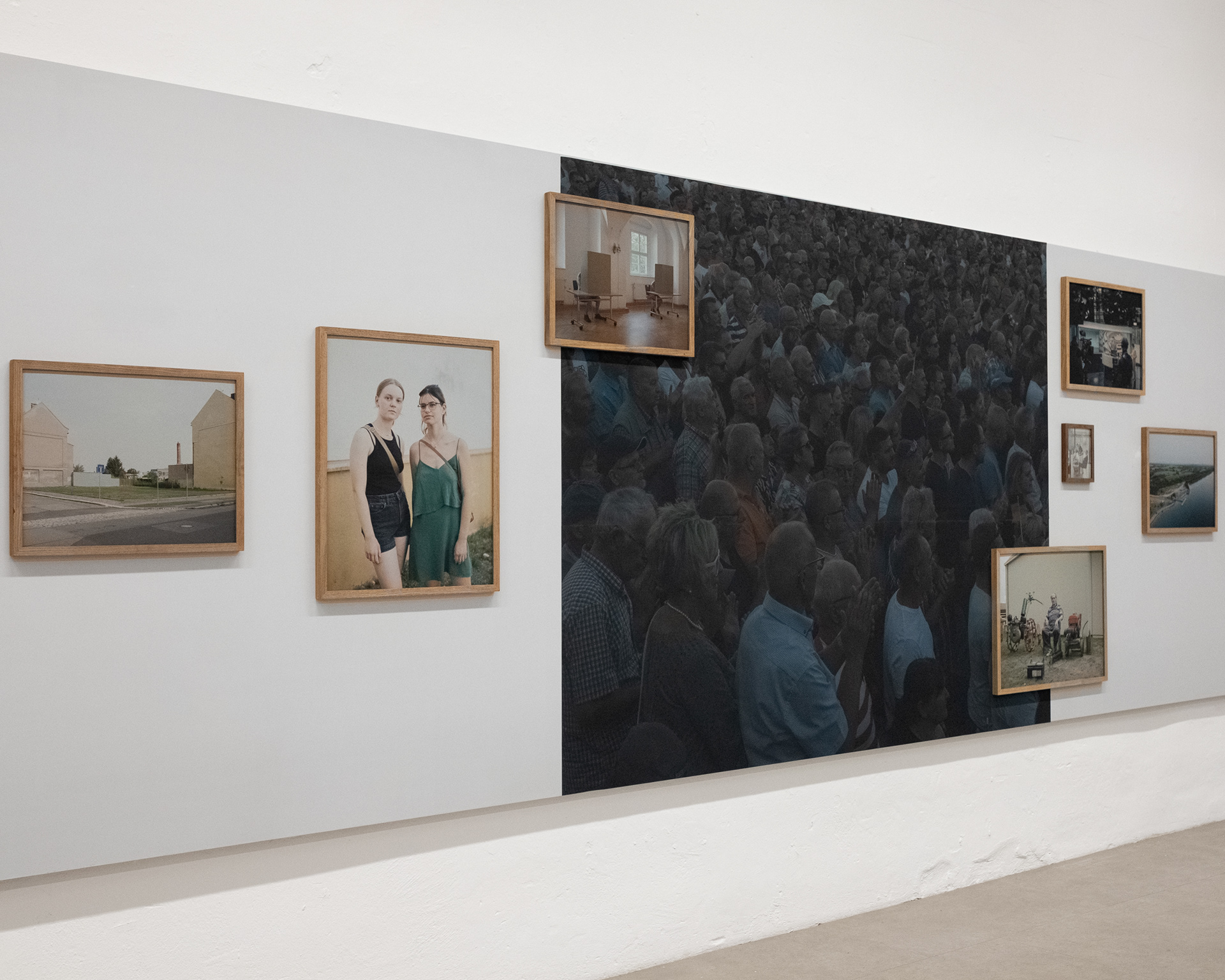
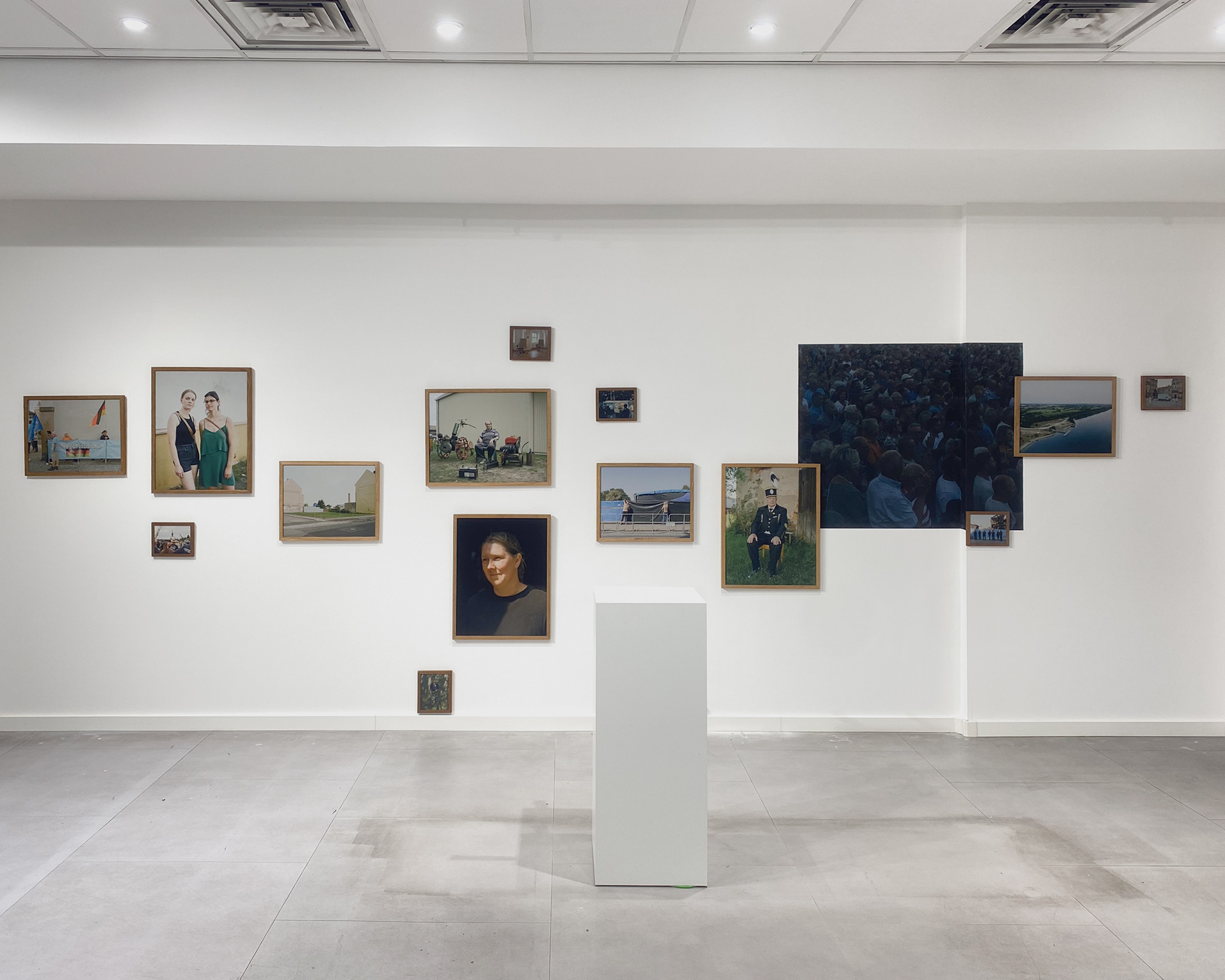
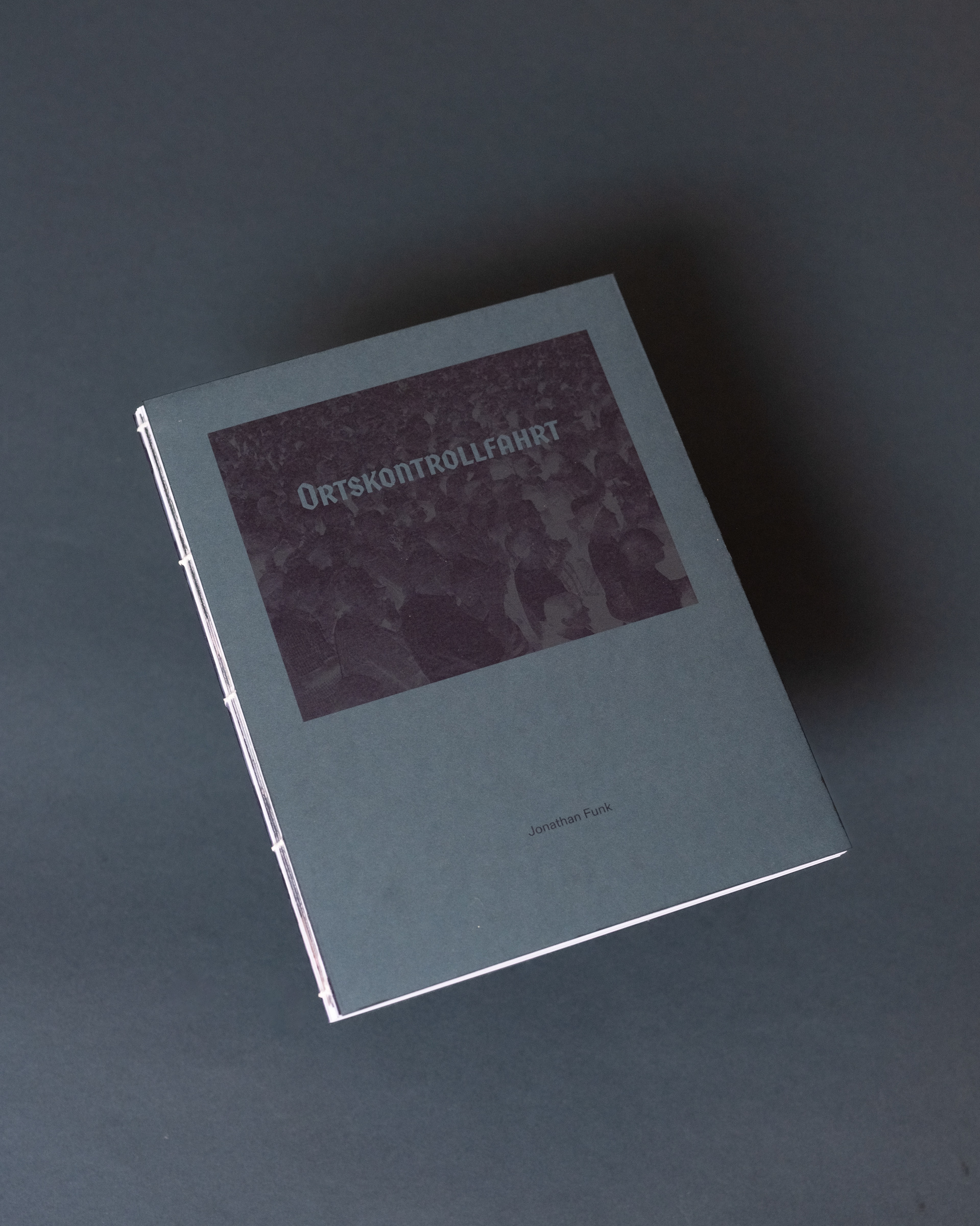
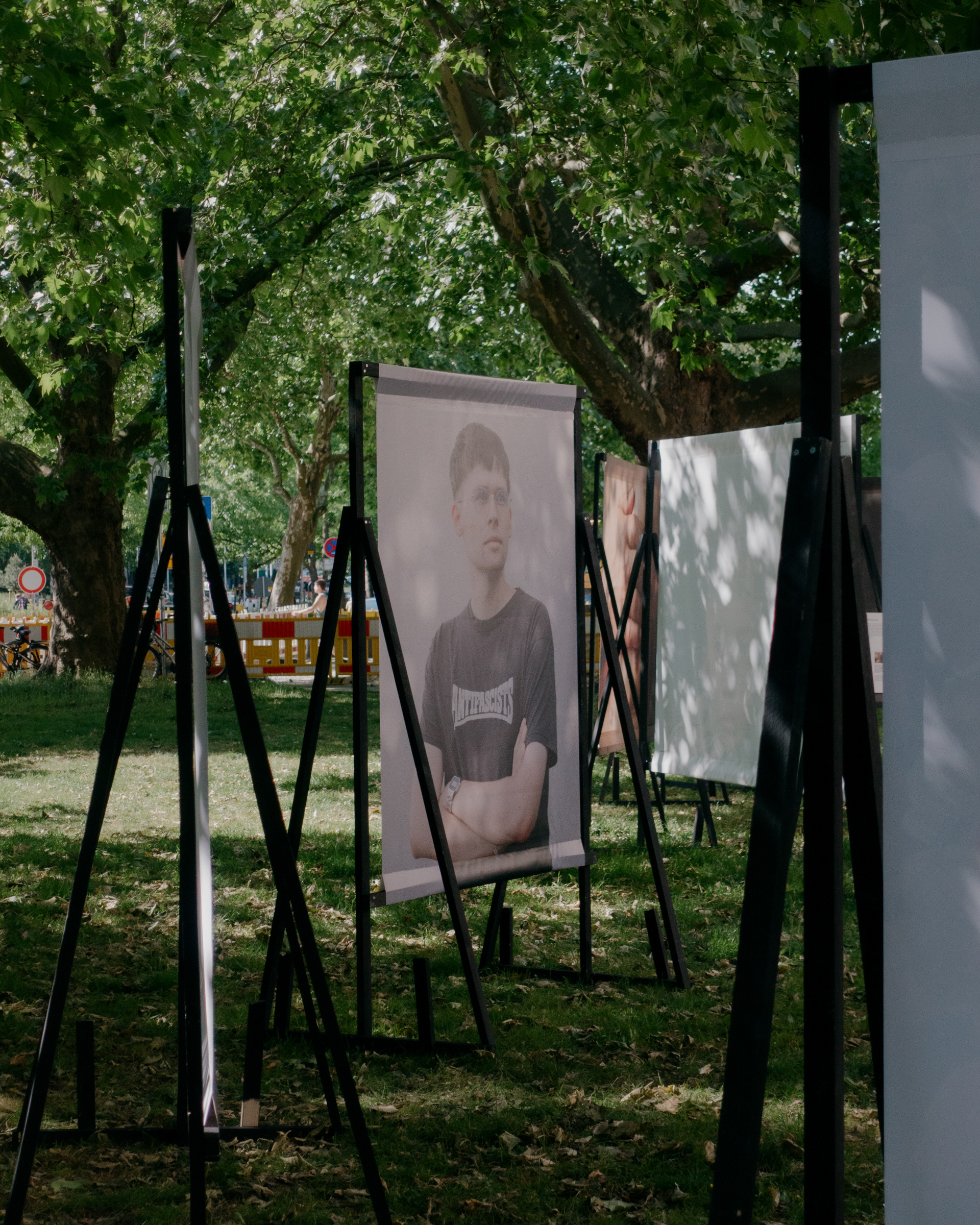
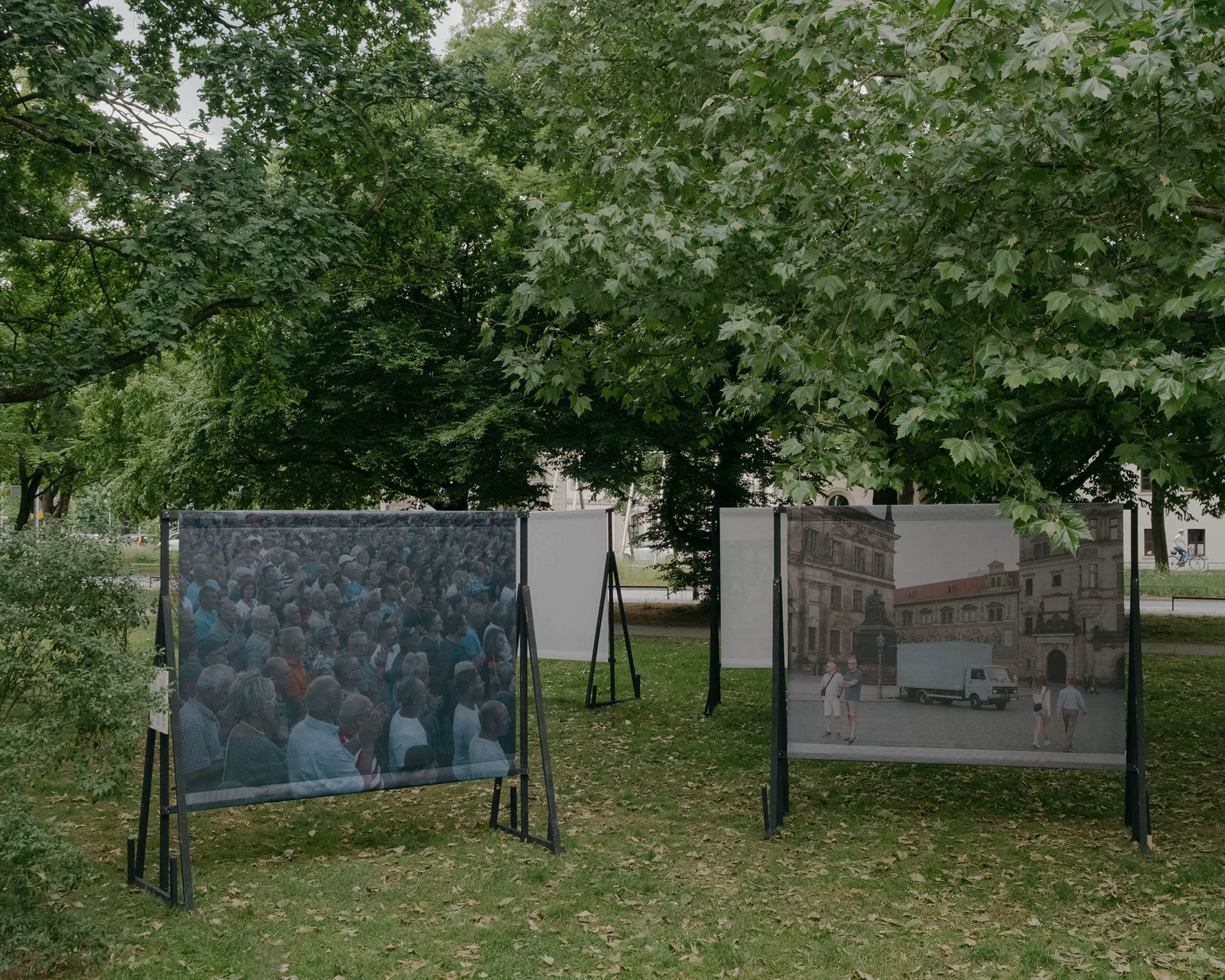
© 2025 by Jonathan Funk